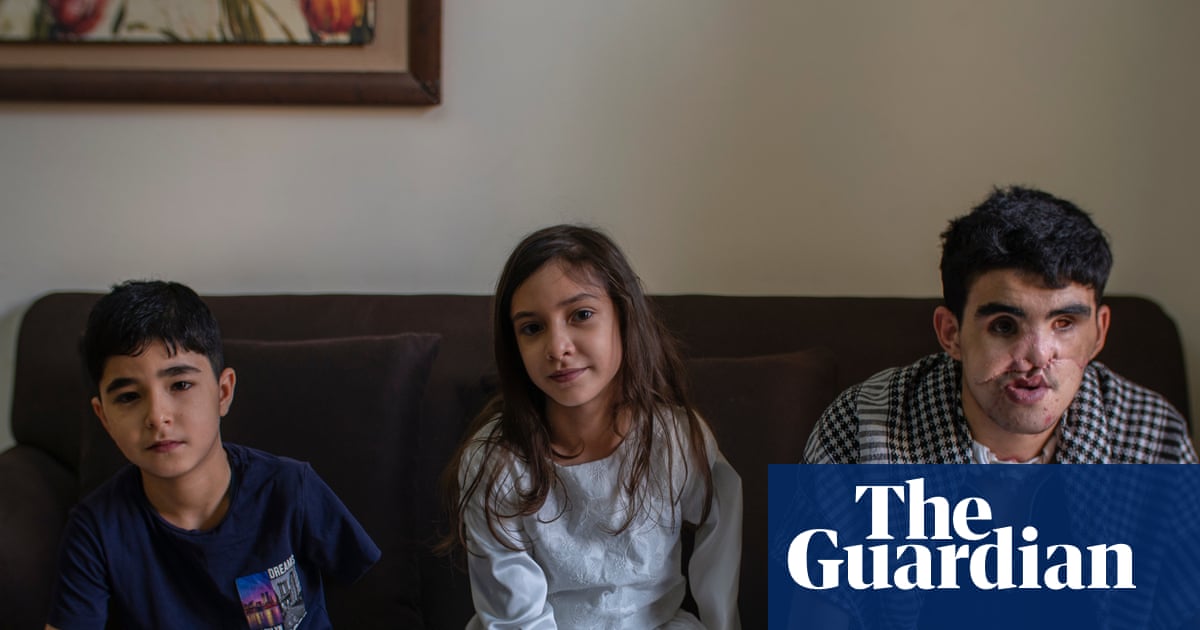Should schools still be taking a long summer break – is it detrimental to children’s learning? Or should they go year-round with shorter breaks? Julia Phillipson, Corby
Send new questions to [email protected].
Readers reply
1. Schools aren’t babysitting services. 2. There’s something else available to teach kids during the holidays – their parents. See also: weekends and evenings. Goldgreen
Sweltering in a classroom in July and August, surrounded by sweatily-smelling kids and oozing unattractively oneself is not conducive to education. It’s been a very long time since I had to consider this (I may take a very different view if I’d had to find something for children to do in the long holiday), but the prospect of being in a populated environment through the heat of summer (which does assume we’ll get any) is not one that appeals.
School is bad enough already – much of it a thoroughgoing waste of time. But at least in winter you’re out of the cold and rain, until some hearty fool makes you go outside for a nice healthy run through wet mud, so don’t make it worse than it is already. wightpaint
The long break is good for children to learn to use their imaginations, especially if they are not booked up with constant daily programmes or looking at their phones. Rivermama
Three-term school year with the months of December, April and August off seems just the ticket. Teemytooks
Most developed countries give their children longer summer holidays and have better educational outcomes. The longer breaks also give children a valuable bookend to the academic year and a chance to reset, re-energise and sometimes even reinvent themselves for the following one. The idea of further shortening their summer is only being floated to appease parents and businesses. Perhaps we should make decisions about children with their wellbeing in mind and not our own? stavrolebeau
In Northern Ireland schools close July and August. In my experience both pupils and teachers are exhausted by the end of June and the longer break is welcome. Play is an important part of the school experience and out-of-school learning helps children develop, too. SJM1960
School terms are already devolved along with all other education matters. They’ve always been different in Scotland and Ireland from those in England. Climate is one of the factors as harvest times varied when schools were first established. MikePicken
Holidays can be educational too. GorseBush
England is tied with the Netherlands for six weeks’ summer break – the shortest in Europe. Summer break ranges anywhere from six to 14 weeks (Italy). France is eight, Sweden is eight to 10.
I was a teacher for 33 years. The UK has some of the shortest summer holidays in Europe. Many other countries that seem to have much better educational outcomes than the UK have longer holidays. If the worry is that the kids forget what they have learned over the six weeks then we can’t be teaching them properly. HiDeHi
A little detrimental. But at least with computers you don’t have to learn how to hold a pen all over again. I used to like it in uni and during A levels where we would finish early to mid June. Cheaper to travel than July and August, and August is a more mixed bag of weather. Plus if football season has started you need to be back at school to recreate the goals from MotD at break time. So I would go five weeks June into July and then put one week late September for that Indian summer vibe that tends to happen. And again, cheaper travel. catchytitled
The evidence around changing the school calendar, such as changing the summer holiday break, does indicate that this could have an average overall positive impact on pupils educational progress. It may, however, not be cost-effective for schools to implement compared to other approaches. Schools would also need to consider the workload and wellbeing of their staff. Grace Stokes, Education Endowment Foundation
Thirty years of secondary school teaching have taught me that the long summer holidays make no sense in terms of education and progress. Nor do three terms fit with the tiredness and fatigue children are clearly exhibiting along with teachers at the end of each term.
Far better to have five fixed terms with shorter breaks in between to limit the loss of learning but also provide meaningful downtime. Easter should be the bank holidays only rather than two weeks so that the foreshortening of terms artificially to make the moveable feast fit is removed. More extended holidays across the year also allow for holidays to be taken outside peak periods. Sara Wells, by email
The traditional six-week summer holiday is too long – by a week. While it remains part of our national rhythm, growing evidence suggests that such long breaks negatively impact learning, especially for pupils already at a disadvantage.
For children from resource-scarce backgrounds, the summer can widen existing gaps. Without the structure, support, and learning environment school provides, too many pupils return in September having lost ground, not just academically, but socially and emotionally.
Summer-born pupils too already contend with issues of maturity and school readiness; the long summer only compounds these challenges.
For many pupils, particularly those with Send or historical attendance issues, being out of school for too long can create real anxiety about returning, which then feeds a cycle of absence and disengagement.
We should also acknowledge the strain the long summer places on both families and staff. From a teacher’s perspective, most colleagues are already working during the final week of the holiday to prepare for the term ahead. And after five weeks, many children are ready to come back, so are the staff. Shortening the summer to five weeks and introducing a two-week break in October would create a more balanced, manageable calendar. Some authorities are doing this alreadys.
An extended October half term could also ease the pressure many families feel to take holidays in June or early July. By offering more flexibility within the school year, we may be able to reduce unauthorised absence.
Our education system must be designed to support those with fewest resources. More evenly spread term times would help create continuity, reduce the anxiety caused by long gaps, and allow schools to maintain more regular contact with those pupils who benefit from it most.Mark Barker, Sheffield, by email
Long school summer breaks are essential to growing, coming of age and forgetting that school ever existed. It’s a time for playing, kids losing themselves in building dens, exploring, cycling and letting time stand still. Mental health improves when there are no stresses. The long school break is one of the few times in a person’s existence when everyone can just be.
Daniel Maclaren, by email
I grew up in 90s Poland where we would break for summer by the end of June. We had two full months free from school and it didn’t stop some of us from finishing top of the class. Rest and play enhances learning. Stop forcing kids to roast in classrooms in July, let them enjoy the elusive good weather and create provision for universal summer childcare. Agnes Panasiuk, by email
Look at the places that have longer holidays. Ireland has nearly double the summer holidays than the UK while also sitting just above the UK in most of the global ranking charts.
It is clear the longer holidays in Ireland are not hindering Irish students – and they may be helping them.
Let quality take the lead over quantity. Paul Hunt, by email
I find this question quite amusing as I find the UK system great. I’m an ex-pat in Italy with a daughter in school and find the school year here crazy. They get three months (yes three!) off in the summer, but then nothing during the year apart from two weeks at Christmas. No half terms, four days at Easter, and three days in February plus the odd bank holiday (which are often mid week so no long weekend, or fall at the weekend and they lose them altogether).
They arrive to the summer completely dead after six months without a full week break. Their school days here are also crazy: 8am to 2pm, six hours straight with two 10-minute breaks, no play time, no lunch breaks, no outdoor space, just enough time to queue to use the toilet. It’s insane. So don’t complain about the UK system, if you ask me, it’s just perfect. ClimateUnboxed
British summer seems to be frequently over by the end of July, so six weeks of grey and wet. A two-week autumn break so kids can properly decompress before the Christmas busy term would be ideal. Some UK counties do that now. Grundle
As a former working single parent, planning my kids’ summers began in January of each year. As a nurse, it was nearly impossible to get the common holidays off as hospitals run 24/7.
I would generally engage with my children about what activities they would like to pursue during their breaks. Art? Music? A sport? A second language?
Growing up with summers off, I look back at that time as mostly wasted. When I was older, and could have a summer job, that had value, but prior to that, I wish I’d had more opportunities to learn.
Sadly, we could rarely afford fancy summer camps nor could we afford vacations to the country.
For myself, for my children, I think the option to pursue new subjects (physical, academic, artistic) has more value than “free time”. RitaDL
My school had a lot of children with overseas family (mostly in India, some in the Caribbean). The long summer holidays allowed these kids to spend extended time with grandparents and cousins that just wouldn’t be possible if the weeks were broken up across the year. natfantastic
My partner was a teacher for many years. Back in the 70s, the local authority decided to try saving money by moving a week from the summer holiday to the Christmas break so that they didn’t have to heat the schools. It was horrible as the weather was too bad to go anywhere. sgiwen
The break is far too long. If you work it is a nightmare. There should be structured available quality clubs if it’s not possible to distribute the holiday across the year. sophieecp
I’ve been a teacher for 15 years and by the end of the summer term, the children are absolutely knackered. Christmas isn’t really a break, it’s full on emotional stimulation. Easter is their first proper break and even that is now becoming a Christmas 2.0. Summer is their reset and it’s also the time they can just be themselves. They are pushed so hard in school now in a never ending pursuit of better. Doesn’t it need to quite as long? No. But move a week and bolt it on to a half term, don’t take away their summer by making a two week holiday. Give them a break, they need it. Andy Sutton, by email
My daughter, who is at secondary school, heartily agrees that the summer holidays are too long and that you don’t get enough during the rest of the year. Summer holidays can be really boring when both parents are out at work, you live a bus journey from all your friends and your parents can’t even afford a week away: the appeal of lying in bed all morning reading a book palls after a couple of weeks.
Meanwhile, so much of the Easter and Christmas holidays is taken up with being dragged round to relatives. Two weeks off the summer holidays and redistributed among the others would suit my daughter down to the ground. SpoilheapSurfer
When I was young we had long summer breaks. Best times. And then a longish break before Christmas. One would wait for it and cherish it more because it was awaited. I live in Germany where children have seven weeks’ long summer holidays. In Finland, which is very progressive re schools, the break is 10 weeks. Lakehaus

 3 months ago
175
3 months ago
175

















































